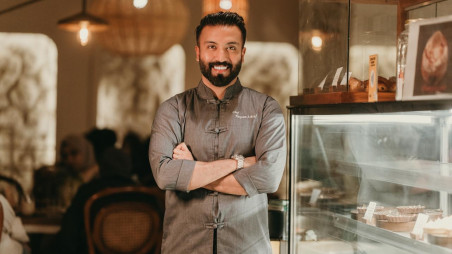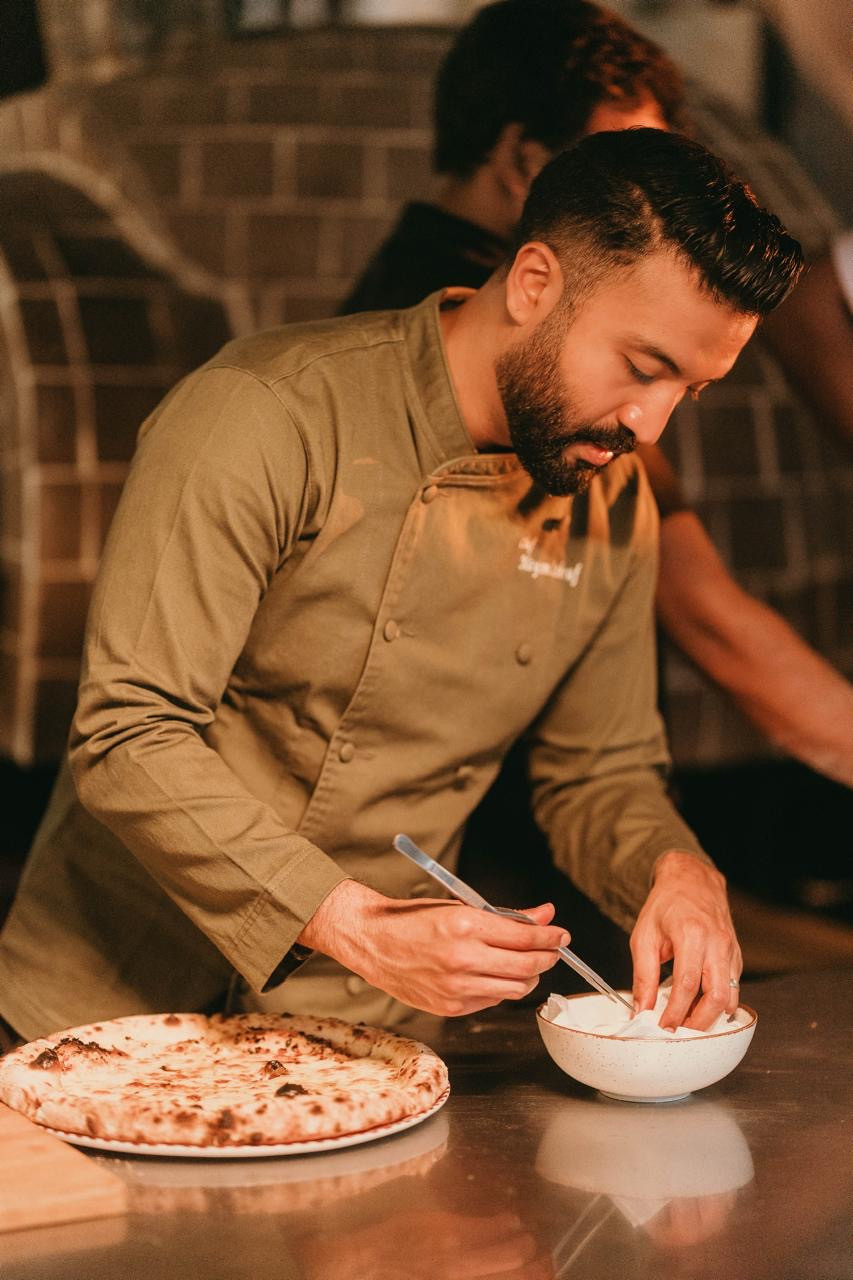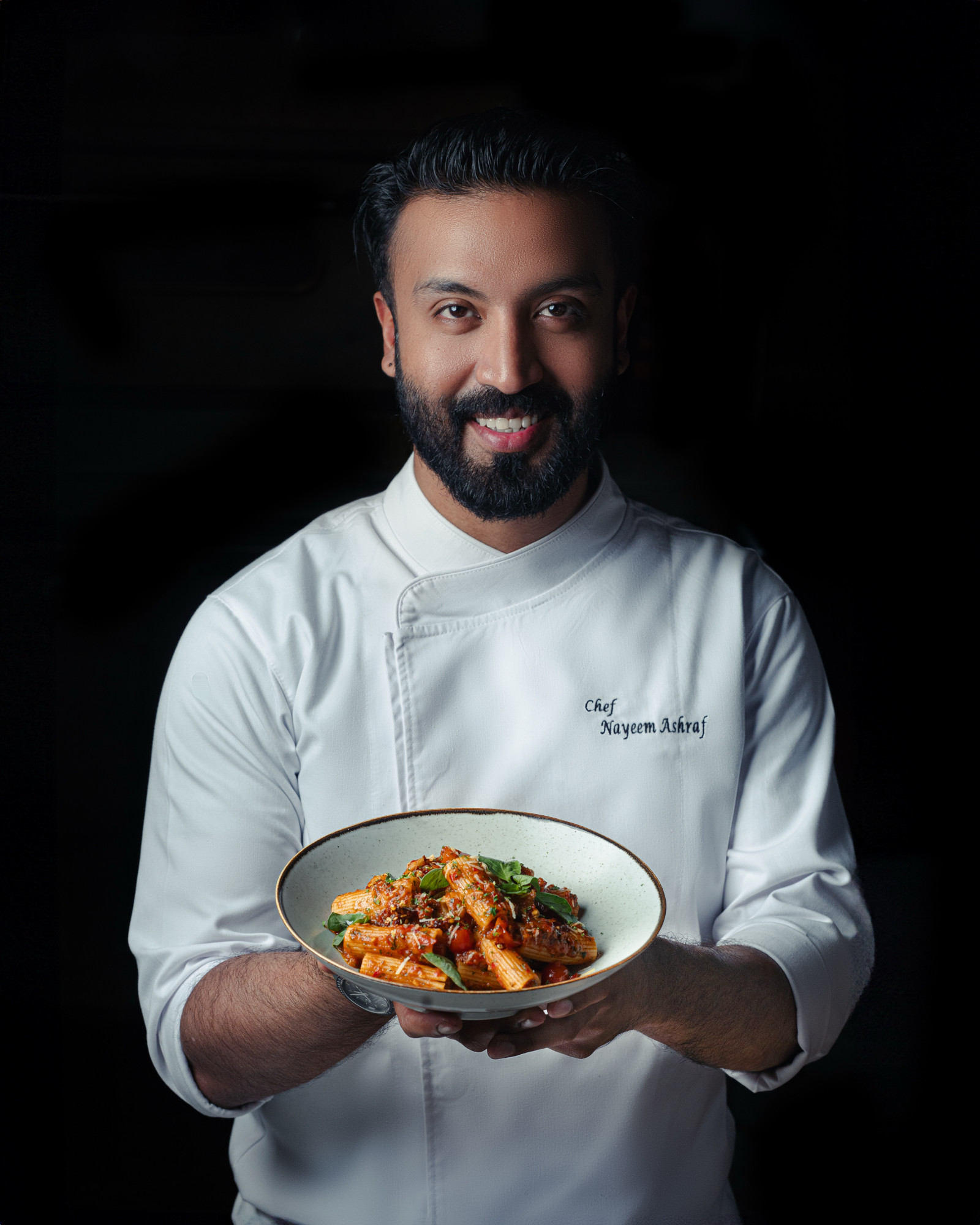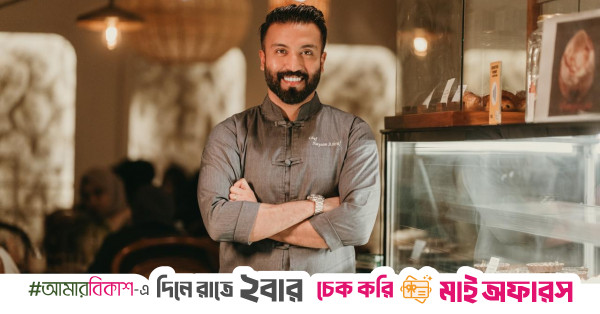03 September, 2025, 09:55 am
Last modified: 03 September, 2025, 11:08 am
Photo: Courtesy
“>

Photo: Courtesy
The soft clink of cutlery, the aroma of wood-fired pizza, and steam rising from glossy buttered pasta filled the warmly lit dining room. Amid it all moved a man in casuals—not shouting orders from the kitchen, but personally serving dishes and checking in with guests like an old friend.
After the final bites were taken, he returned to clear the dishes himself, pausing to ask, “Did you enjoy it?”
At Ciao, tucked away in Banani, hospitality comes before titles. Few would guess the man clearing plates is Nayeem Ashraf—judge of Shera Radhuni Seasons 7 and 8, founder of SHINEE culinary schools, and the visionary behind the restaurant.
Keep updated, follow The Business Standard’s Google news channel
Photo: Courtesy
“>

Photo: Courtesy
In most places, owners stay hidden, kitchens remain closed off, and chefs rarely meet diners. But at Ciao, the experience is personal—because the chef is not just behind the scenes, he’s right at your table.
Marketing graduate turned chef
Becoming a chef was never part of Nayeem Ashraf’s childhood dreams. Like many Bangladeshi students, he went to Canada for higher studies, earning a Bachelor’s in Business Administration with a major in Marketing. Back then, cooking was just a way to pay the bills.
“I followed some friends into restaurant jobs,” he says. “That’s where it began — part-time shifts in kitchens. But I fell in love with it. The rush, the pace, the energy — I felt like I belonged.”
Even after graduation, Nayeem chose the kitchen over a corporate job, working through his two-year post-study work permit. Passion had clearly won.
Photo: Courtesy
“>

Photo: Courtesy
Returning to Bangladesh around 2013–14, he found a culinary scene lacking in formal chef culture and structured training. To set himself apart, he enrolled at Le Cordon Bleu in Malaysia for two years — a decision that, paired with global exposure, laid the foundation for everything to come.
Ciao: A slice of Italy in Dhaka
The name Ciao had stayed with Nayeem Ashraf for years. During his time in Canada, he worked at an Italian restaurant called Ciao Wine Bar. The word itself — meaning both hello and goodbye in Italian — held a poetic symmetry he couldn’t ignore. So when he opened his own restaurant, the name was a natural choice.
Having trained extensively in Italian kitchens, Italian cuisine holds a special place in his heart — particularly dishes like Aglio e Olio, a simple yet elegant pasta he proudly considers one of his best. But if there’s only one dish to try from the pizza section, it would be the lime shrimp pizza; and from the pastas, the shrimp Aglio e Olio is a must.
While Ciao imports key ingredients like San Marzano tomatoes, prized globally for their perfect balance of sweetness and acidity, and select cheeses, most produce is sourced locally to ensure freshness without sacrificing authenticity. Essentials like extra virgin olive oil are also imported to maintain quality.
The menu is refreshingly simple: six pizzas priced between Tk800 and Tk1800, and five pastas ranging from Tk650 to Tk950. There are no complicated starters or overwhelming choices — no lasagna, no frills.
“You eat what I eat,” Nayeem tells his guests, an honesty that resonates deeply with diners.
Behind the scenes, a dedicated team of five chefs and staff, personally trained by Nayeem, run the kitchen. His culinary school experience guarantees meticulous quality control, with Nayeem overseeing sauces and key components himself.
Ciao also shares its space with Nadia Lakhani’s Dessert Boutique, offering refreshing drinks and tempting desserts, making it a complete dining experience.
Lights, camera, kitchen
In 2019, Chef Nayeem Ashraf joined Umai, a popular Japanese eatery, as head chef before embarking on a new journey — Shera Radhuni, Bangladesh’s premier cooking reality show. Amidst the rhythm of sushi knives and steam rising from miso broth, he was invited to judge the show’s audition round in 2022.
What started as a one-off role grew into a full commitment, and by 2025, he was judging the entire eighth season.
Nayeem’s connection with emerging culinary talent goes beyond television. In 2023, he co-founded SHINEE (School of Hospitality Integrated Education Epicentre), a culinary school breaking from traditional, passive teaching methods in Bangladesh. Unlike typical schools where students only observe, SHINEE encourages hands-on participation.
Equipped with six to seven fully functional cooking stations, students cook after tasting Nayeem’s dishes.
“Then we discuss, review, and I give real-time feedback,” he explains. “This interactive learning is what every culinary school should offer.”
SHINEE operates two branches, in Badda, Dhaka, and Natore Road, Rajshahi, offering internationally accredited programmes in partnership with the American Hospitality Academy (AHA) and Paris American International University (PAIU).
Students can pursue Diplomas in Culinary, Patisserie, and International Culinary Management, or enrol in degree programmes such as a BSc in Hospitality and Tourism Management and an MBA.
The flagship 36-month Culinary Management diploma includes a 12-month internship and costs Tk890,000, while shorter options include a nine-month diploma followed by a six-month internship at hotels like Le Meridien, Renaissance, Six Seasons, and Intercontinental, or an intensive three-month course priced at Tk70,000.
Many of these qualifications are eligible for credit transfers to international universities for students attending in-person classes.
A desire to change chef culture
Dhaka’s dining landscape is marked by expensive rents and a high turnover of skilled staff, challenges that Chef Nayeem faces head-on. “Prices of food might seem high, and I understand that,” he says candidly. “But rent and overheads here are steep, and paying staff fairly is non-negotiable.”
Unlike many restaurants where staff wages are minimal, Nayeem is committed to paying his team well, fostering loyalty and consistency. “In this industry, many don’t get proper pay, but I want my staff to feel valued.”
He also observes a missing link in Bangladesh’s culinary culture — the recognition of chefs themselves. While names like Gordon Ramsay or Jamie Oliver attract diners in the West, here restaurant brands are known but the chefs behind them remain anonymous.
“I want to change that mindset,” he says. “Chefs work incredibly hard and deserve to be celebrated.”
Food philosophy and Future Plans
Chef Nayeem doesn’t claim to be an “authentic” Italian pizza maker. His cuisine carries a distinctive flavour of Old Dhaka — a nod to his roots. He compares this to how Gordon Ramsay could never cook an authentic Bangladeshi biryani as well as a local expert might.
“I’m not chasing authenticity,” he says. “I’m Bangladeshi. My food will always carry a hint of Old Dhaka.”
And that’s where Ciao separates itself. While many restaurants in Dhaka mimic global flavours, few accept the limitations — or embrace the beauty — of blending cultures. Nayeem does both. He’s clear about his boundaries. He won’t serve what he doesn’t eat. He won’t promise what he can’t deliver. That clarity has helped Ciao carve out a niche that feels intimate, honest, and deeply personal.
Looking ahead, Chef Nayeem plans to expand- a chain of chef-driven restaurants across Dhaka — from Bengali comfort food like dal-bhat and signature tehari in Puran Dhaka, to casual Thai eateries, to a bold new idea: a restaurant with no menu. “You eat what I serve,” he says with a grin.
His food philosophy remains clear: to cook from the heart and bring joy through food and to foster a culture that respects and celebrates chefs and their craft.



Dining and Cooking